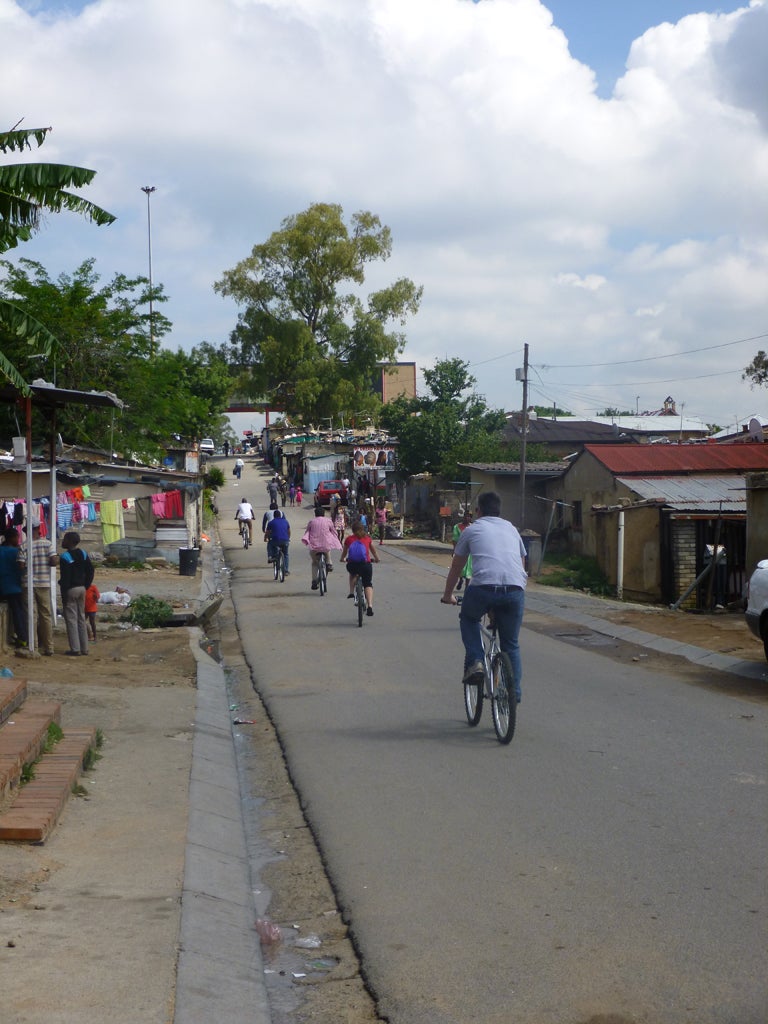MBA students adapt and apply concepts from the classroom to micro-enterprises in Johannesburg
Sherene Sera Jose

A contingent of over 100 from London Business School, including 96 students, faculty and administrators, reached Johannesburg in early December for a week-long experiential course called ‘Entrepreneurship & Economic Growth: the Role of Micro-Enterprises’.
As an Indian who had lived and worked in Singapore, the USA and the UK, I felt familiar with Western and Eastern economies but had little knowledge of the emerging giant that is Africa – a key reason for me picking this destination for my ‘Global Business Experience’. Additionally, as an aspiring entrepreneur and organiser of the ‘Talks on Entrepreneurship Leadership at LBS’ (TELL), I am regularly exposed to hugely successful entrepreneurs but had little understanding of micro-entrepreneurship.
During the week, we developed a keen awareness of the economic disparity as we commuted the shortest distance from our swanky hotel in Sandton to Alexandra. Alex, as the place is also known, is one of South Africa’s poorest townships, which are underdeveloped urban areas from the Apartheid era with non-white population.
The students were assigned in small groups to work with 18 Alex micro-entrepreneurs who ran hair salons, driving schools, printing shops and restaurants, amongst others. All groups had ‘navigators’, locals from Alex who acted as translators and guides – many of whom were entrepreneurial and ambitious themselves. We used a multi-disciplinary approach in our consulting projects, using concepts learned from our MBA courses in finance, marketing and operations, to understand the local businesses, diagnose the underlying issues and develop recommendations. Most importantly, we learned to break away from the ‘ivory tower’, to adapt business theories to easily implementable solutions and to communicate the key concepts in simple messages relevant to people who did not enjoy the privilege of business jargon.
We also benefited from visiting companies ranging from local giants such as SAB Miller and Anglo American to local subsidiaries of multi-nationals like Deloitte and McKinsey and non-profits such as Technoserve. Such exposure to these successful businesses provided the context of South Africa’s broader macroeconomics and the involvement of these corporate in promoting and supporting micro-entrepreneurs. Our respect for LBS faculty was renewed as they discussed their research and work on the economic revival and entrepreneurial development in various parts of the world, on projects such as the one we had embarked on for this week.
A personal highlight for me was the concluding session when one of the navigators narrated a soulful, moving poem expressing the timelessness of the relationship that had formed between the LBS students and the people of Alex. This was followed by an insightful session when students presented their own lessons from the week. Many expressed hope that our intervention in Alex would help grow the businesses we had consulted for, some expressed frustration at the state of economic affairs in South Africa and everyone appreciated the role of entrepreneurs, big and small, to the economic well-being of a country. Most of all, we were grateful for the education and opportunities afforded to us by London Business School!
Join our commenting forum
Join thought-provoking conversations, follow other Independent readers and see their replies
Comments
Bookmark popover
Removed from bookmarks